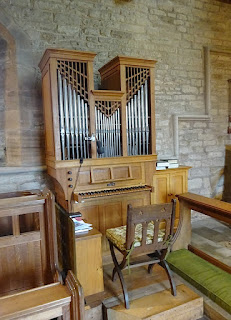There will have been a different moment for each person when it finally struck home just how serious this crisis is. A moment when this went beyond being the threat of a virus affecting a distant community with the potential to cause inconvenience to travellers, to being something that has profoundly changed our lives at present and may well leave them looking very different in the future.
For some it may have been the moment the first cases reached the UK or the realisation that the weekend in Rome was off. Many people I know properly sat up an took notice when football was stopped. Perhaps when the school gates were locked. And there will have been plenty of people for whom any remaining sense of distance from the problem will have been crushed by the sight of the pub door closing with no immediate prospect of re-opening.
And for those who live lives even remotely religious, the closing of the the churches has been both a profoundly spiritual and upsettingly practical development as well as an undeniable statement of how serious a position the world now finds itself in.
All these aspects of our different lives - football, pubs, work, shopping, schools, churches - make up the underlying fabric of what we do. They dictate the meaning and structure of out lives. Their removal, even either temporarily or in part, leaves us bereft and struggling with how to make sense of things. We also, quite naturally (and with commendable creativity) look for alternatives, ways to beat the crisis. Footballers have been challenging each other to YouTube skills contests; musicians and theatre groups have been live-streaming their efforts just to keep reaching the isolated.
As an aside it makes me ponder what would happen in the future should some global computer virus gradually wipe out life online. Perhaps many of us would be forced to isolate ourselves in the real world in search of entertainment, companionship and fulfilment. But that’s probably one for the satirists.
You can have a faith without a church of course. History has provided us with plenty of instances when particular faiths have been driven out of any overt public presence. Many people have relied on their faith to get them through such crises. Conversely there are examples of religious communities existing without any open congregation, opting instead to mark the offices of the day with closed prayer and absolute disconnection from the world outside. But, for most, it’s the interaction of place and people which is essential and it’s this which has provided the problem and the catalyst to what the faith community has been doing in the last few days. How do we keep going when we can’t go at all?
My still lengthy list of places of worship I’d still be fascinated to visit has had to be set aside. Who knows for how long. I’ve enjoyed doing this blog but to keep things going in the way I’ve been producing it is going to need some creative thinking.
I’m starting this period of necessary exile by tuning in on Facebook to the sight of Justin Welby, Archbishop of Canterbury, conducting a morning prayer service to about three people in the crypt of Lambeth Palace Chapel. It’s a specially-recorded short service offered to the online world through the Church of England website. It’s strange to hear the familar words of the service with no response. A tough time for vicars too evidently but at least they still get the sermon. The thoughts expressed are in many ways identical to those we’ve heard from politicians and the medical community; Keep yourself safe and think of others.
All churches have been responding using the new technologies which, one could assume, have played their part in keeping attendances falling. Online services, webcams, community forums, downloadable instructions for having your own service at home. Virtual Friday prayers. It’s all out there.
The fact that this also happens to be Mothering Sunday is, awful as it sounds, neither here nor there. Cynics might say restrictions on what we can do have probably hit the retail and service industries far more than any other area. All those unsold chocolates, un-sent flowers, cancelled pub lunches. If you haven’t been thinking constantly of your vulnerable parents over the last few weeks, then not being allowed to deliver a card and a bunch of flowers is hardly going to make a difference.
The panel discussion on Radio Four this morning shows that the problem is similar across all faiths. And so will be the resourcefulness of the response no doubt. It may provide some more of the heartwarming community rallying we’ve been seeing.
One of the things faith - any faith - has enabled people to achieve is in providing the chance to pause, reflect and reset for the trials to come. Ironically this new life of avoiding as much actual social contact as possible gives all of us the opportunity to do just that.
Whatever the resources, whatever the setting and whatever the faith (or complete absence of it) I hope we all manage to do that. Priorities have never been clearer.
Whatever the resources, whatever the setting and whatever the faith (or complete absence of it) I hope we all manage to do that. Priorities have never been clearer.



























